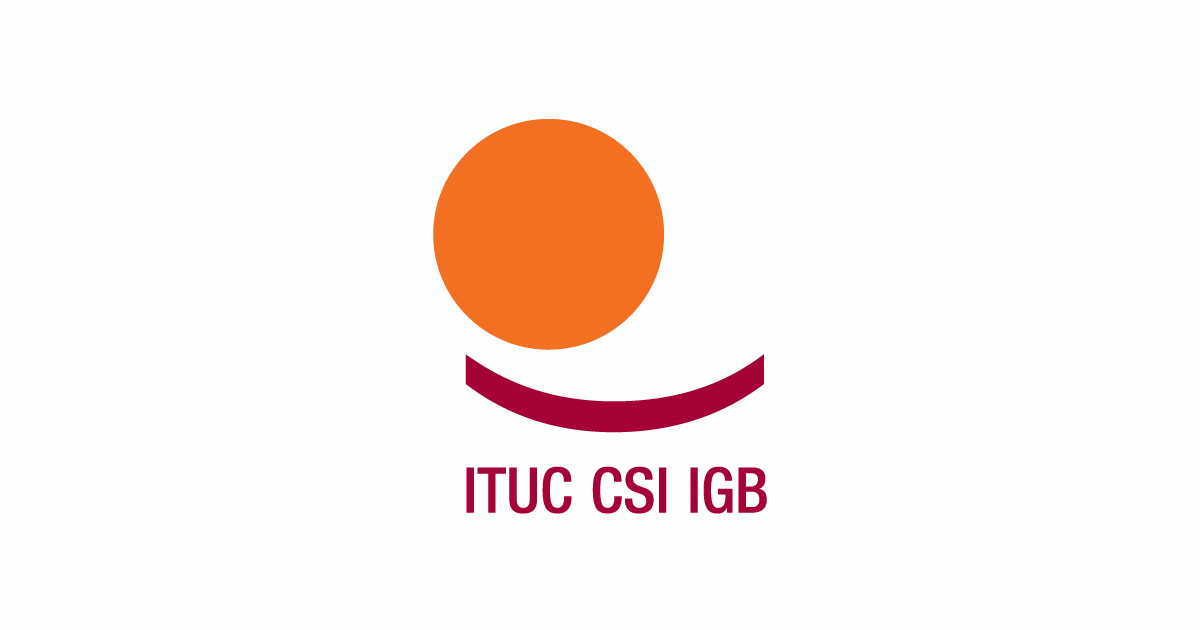Austerity World Bank and IMF continue to insist on failed and outdated neoliberal policies

In a meeting with the president of this international financial institution, the co-president of PSI Inter-America Federico Dávila pointed out that, on the one hand, austerity should be abandoned and, on the other, profound changes should be implemented in our current tax system to increase the capacity of the state to invest in quality public services and achieve tax justice.

Euan Gibb
On Friday October 22, Davila participated in a meeting with the president of the World Bank, David Malpass, and a follow-up meeting with the director of the Governance Department. Barbara Figueroa, Secretary for Economic Policy and Sustainable Development, Trade Union Confederation of the Americas (TUCA) and other trade union leaders also participated.

Davila began his interventions by arguing that the bank seems to live on a different planet than the rest of us and pointed out that PSI just launched a comprehensive report on why public sector wage bill constraints must end. In light of Covid, the growing debt crisis, rising inequality, gender injustice and the climate crisis, there is an urgent need to review the fundamental redistributive role of states and rethink the public sector. Davila made it very clear that everyone understands the need for profound changes in our current tax system to increase the capacity of the state to invest in quality public services and achieve tax justice.
Over the last forty years, austerity policies have led to cuts in public sector staffing that have undermined the ability of governments to deliver quality public services. Whether imposed from outside by international financial institutions, including the International Monetary Fund (IMF) and the World Bank, or from within by finance ministries, following the failed logic of the Washington consensus, one of the central austerity policies that has the greatest impact on public services is the imposition of restrictions on the public sector wage bill.
The Public vs Austerity (Executive Summary)
The direct consequences of these policies include blocking the recruitment of new teachers, nurses and other essential workers even when there are severe shortages and strict limits on the already low salaries of existing workers in health, education and other areas of the public sectors that undermine the recruitment and retention of qualified staff.
Our research exposes how austerity cuts in just 15 countries have blocked the recruitment of more than 3 million nurses, teachers and other essential public sector workers. Implementing cuts to the public sector wage bill undermines gains in health, education and gender equality, while blocking climate action in some of the world's poorest countries.
Additionally, we have researched and analysed hundreds of cases of Reclaiming Public Services from around the world in recent years. Research confirms a clear reversal of the ideological premise that private is better than public. The promises of higher quality, more accessible and cheaper public services and less corruption are never fulfilled. Exactly the opposite is systematically the case. We have also collected and analysed campaigns to bring privatised services back under public control in a guide that shares experiences and strategies from various sectors and countries.
Taking our public services back in house - A remunicipalisation guide for workers and trade unions
The public sector is always called upon to maintain responsibility for risks, especially when things go wrong, while benefits and profits are privatised and taken out of the system. So-called profits that are unavailable to be reinvested in the public infrastructure and services upon privatization. We would like to take credit for these hundreds of cases of privatisation reversals, but the reality is that many of these cases occur without our interventions. They occur when local elected officials experience for themselves the high costs that are a consequence of this broken model.
Despite the enormous amount of evidence surrounding us, the World Bank and the International Monetary Fund continue to insist on failed and outdated neoliberal policies. Bank officials continue to promote the idea that public sector investment crowds out private sector investment or competes unfairly with it for skilled workers. And both institutions continue to repeat the now classic, 'we no longer impose policies on countries'.
The World Bank has just abandoned its ideological 'Doing Business' report, which assessed and compared national tax policies, regulations and labour laws, including the 'ease of firing workers', which served as a stimulus for countries to enter directly into a race to the bottom to deregulate and abandon social and environmental protections. This report was used by some governments to try to attract investment. The study was abandoned in the context of a global scandal whereby the bank's directors forced staff economists to manipulate data.
To ensure a more caring, feminist, green and truly sustainable future, it is time for a system change that is focused on economic justice and centralizes public services. The Washington consensus must die and be buried. PSI rejects the idea of building 'back' after the pandemic. On the contrary, we must build forward and discard theconcepts that have created our current problems.
Recuperación y transición justas: las IFI deben actuar para poner fin a la pandemia y lograr un futuro sostenible
Declaración de la Agrupación Global Unions a las reuniones anuales del FMI y el Banco Mundial, octubre de 2021
https://www.ituc-csi.org/just-recovery-and-transition-es
The current model has proved disastrously incapable of responding effectively to overlapping economic, ecological and health crises. We need a completely different relationship between the public and private sectors to create a sustainable, equitable and resilient economy. Strengthening the economic role of the state would enable us to pursue social goals, increase international solidarity and reform global governance to benefit all. Public investment must be reorganized to prioritize long-term collective value creation over private short-term profit. These are some of the key ingredients that will be necessary to guarantee our survival on this planet.

